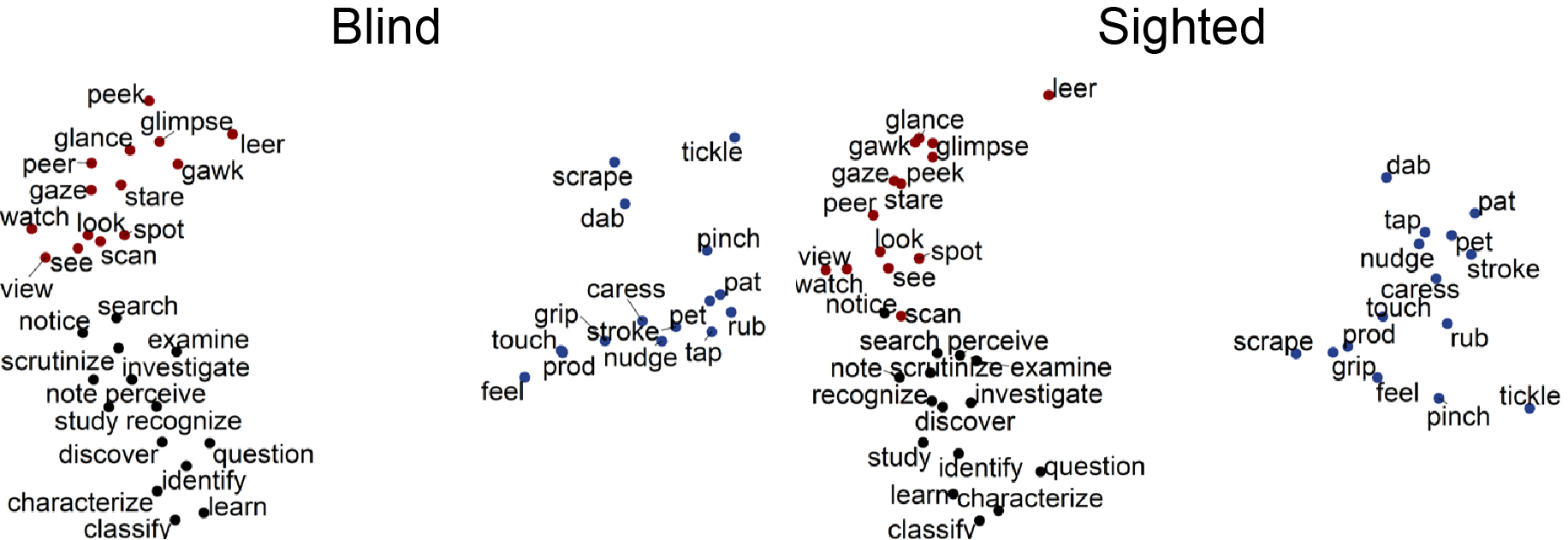
How does developmental experience affect the human mind and brain? What is the role of experience in structuring concepts of events, objects and mental states? How are such abstract concepts implemented in neural circuits? Our lab investigates these longstanding philosophical puzzles using the methods of cognitive neuroscience and psychology. We study the origins and structure of human cognition by comparing the minds and brains of people with different developmental experiences.
Cortical Plasticity

A key research direction in the lab examines “visual” cortex plasticity in blindness. In sighted primate, much of the occipital lobe is dedicated to visual perception. What happens to this part of the brain when it does not receive its “species typical input” during development? Previous research finds that in blindness, occipital areas are active during tactile and auditory tasks. One of our goals is to uncover the cognitive functions that are supported by the occipital cortex in blind people. Are these functions similar to vision? We find that in blindness “visual” areas become involved in higher-cognitive functions, including language, mathematical reasoning and non-verbal executive control. These functions recruit different parts of “visual” cortex within a single blind individuals. Studying the repurposing of “visual” cortex for higher-order cognition provides insights into the mechanisms that determine cortical specialization in humans.
The lab is interested in how experience changes the function of human cortices and contributes to their ability to support higher-cognitive operations.
Figure from:
Kanjilia, S., Pant, R., Bedny, M. (2018).Sensitive period for cognitive repurposing of human visual cortex. Cerebral Cortex.
Conceptual Development

How does experience contributes to concept formation? One of our approaches to this problem is to compare knowledge of sighted and blind people about objects, events and properties that are only directly accessible through vision: e.g. light events (e.g. shimmer), acts of visual perception (e.g. peek, stare), appearance of animals and colors. This work isolates the contribution of sensory experience to what we know. It also provides an opportunity to study how information gained through linguistic communication contributes to knowledge.
Figure from:
Bedny, M. Koster-Hale, J., Elli, G., Yazzolino, L., Saxe, R. (2019) There’s more to “sparkle" than meets the eye: Knowledge of vision and light verbs among congenitally blind and sighted adults. Cognition.